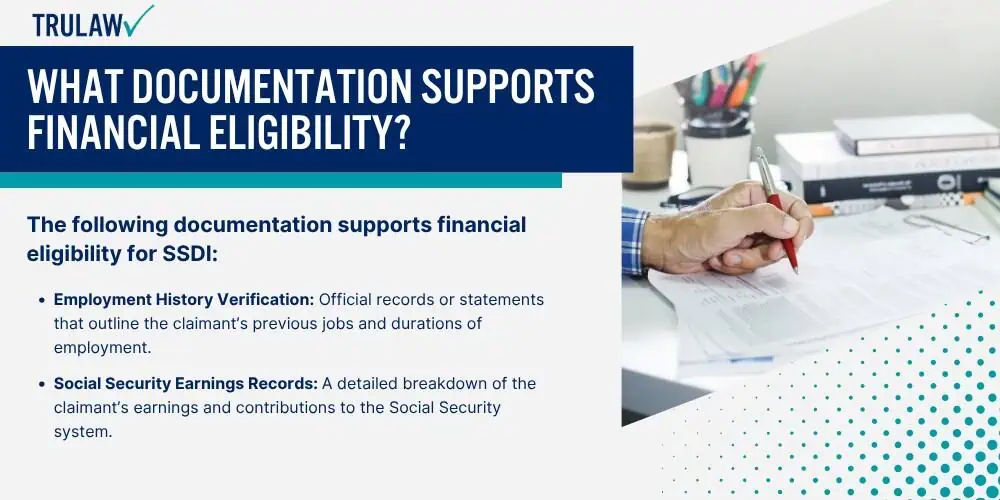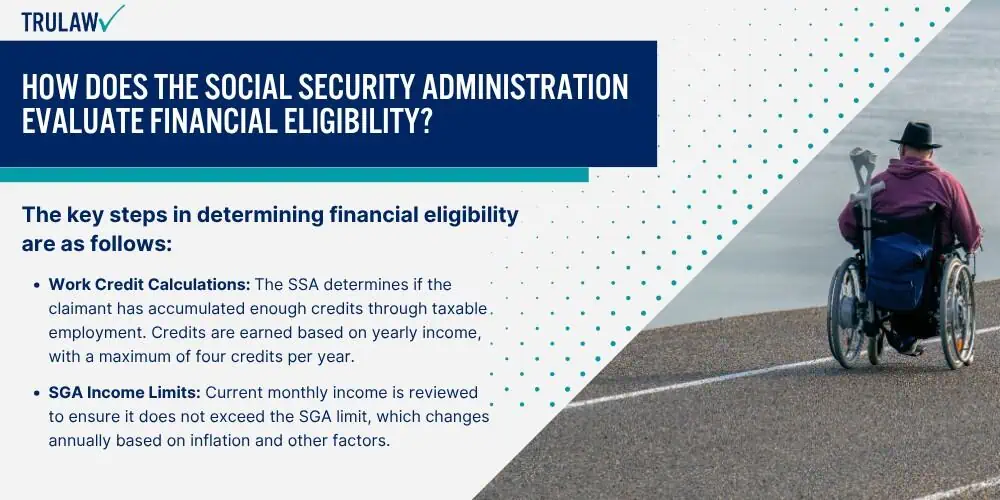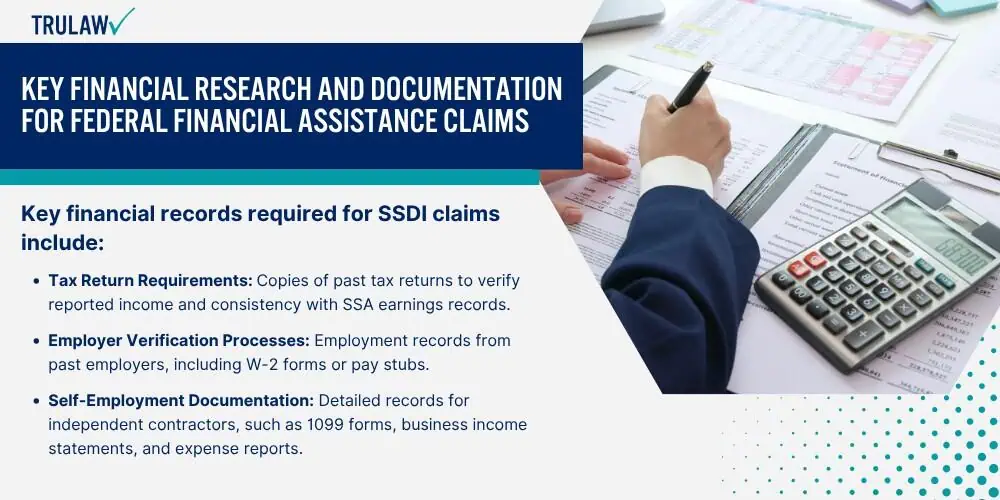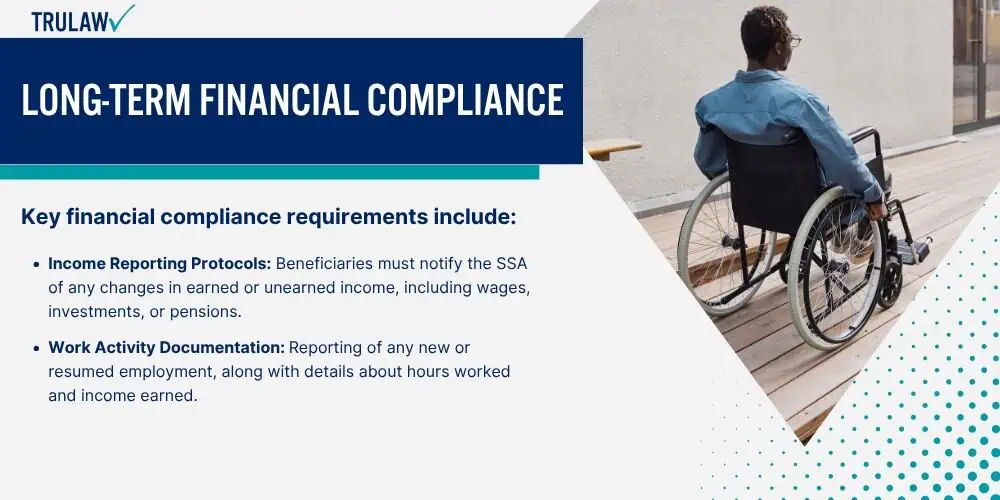To qualify for Social Security Disability Insurance (SSDI), applicants must meet specific financial eligibility criteria based on their work history and income.
The Social Security Administration (SSA) uses the Program Operations Manual System (POMS) to guide the evaluation of financial eligibility.
The SSA evaluates financial eligibility by reviewing documentation that verifies employment history, earnings, and compliance with income thresholds.

This process ensures that only those who have sufficiently contributed to the Social Security system through taxes and meet income standards receive benefits.
Gathering the correct financial documents is essential to building a strong claim and avoiding unnecessary delays.
Work Credits and Income Requirements
Establishing financial eligibility for SSDI requires applicants to demonstrate a sufficient work history and adherence to income limits.
SSDI programs are supported by federal financial assistance, which ensures the availability of benefits for eligible individuals.
The SSA relies on a combination of records to verify the claimant’s employment and income status.
The following documentation supports financial eligibility for SSDI:
- Employment History Verification: Official records or statements that outline the claimant’s previous jobs and durations of employment.
- Social Security Earnings Records: A detailed breakdown of the claimant’s earnings and contributions to the Social Security system.
- Income and Asset Documentation: Evidence of current income levels, including pay stubs, tax returns, and asset declarations, to confirm compliance with SSDI limits.
- Work Credit Calculations: Documentation showing the number of credits earned through taxable employment or self-employment contributions.
- Self-Employment Proof: Records for independent contractors, including 1099 forms, business income logs, and expense records.
Accurate and comprehensive financial documentation ensures that the SSA has all the necessary information to assess eligibility.
Missing or incomplete records can lead to delays or denials, so applicants should carefully review all requirements before submitting their claim.
By gathering these essential documents, claimants can establish that they meet both work credit and income requirements, paving the way for successful SSDI approval.






